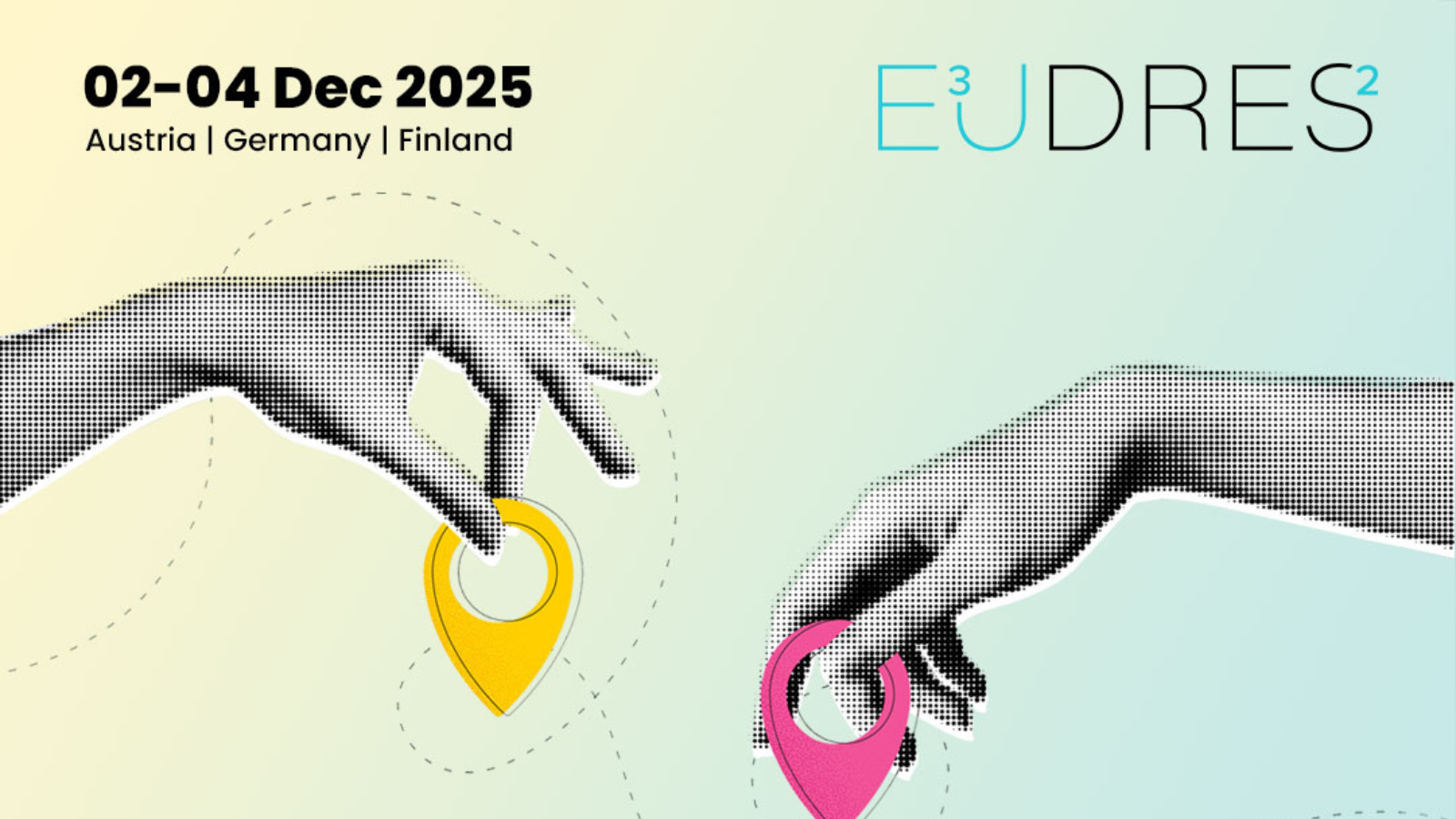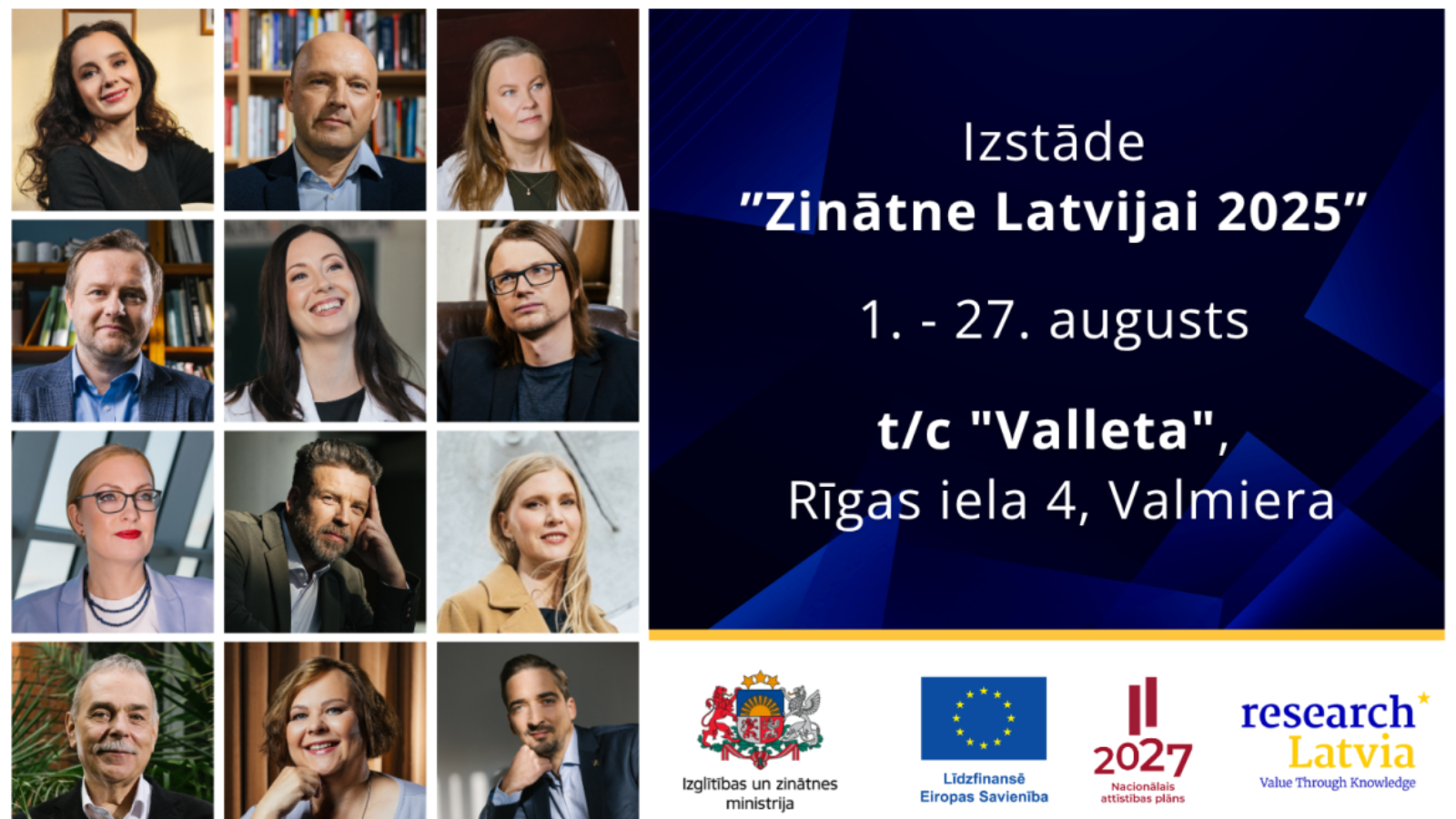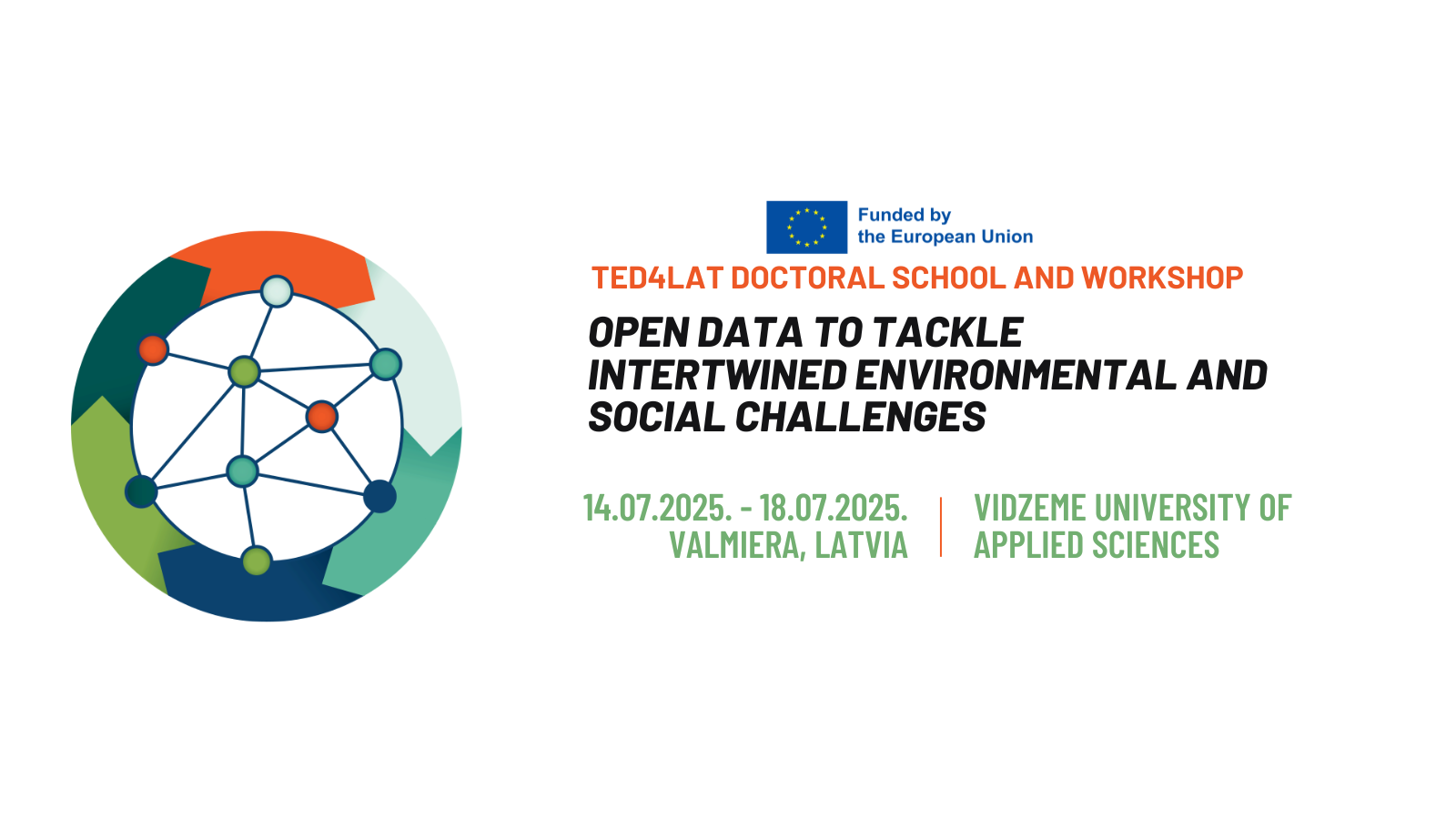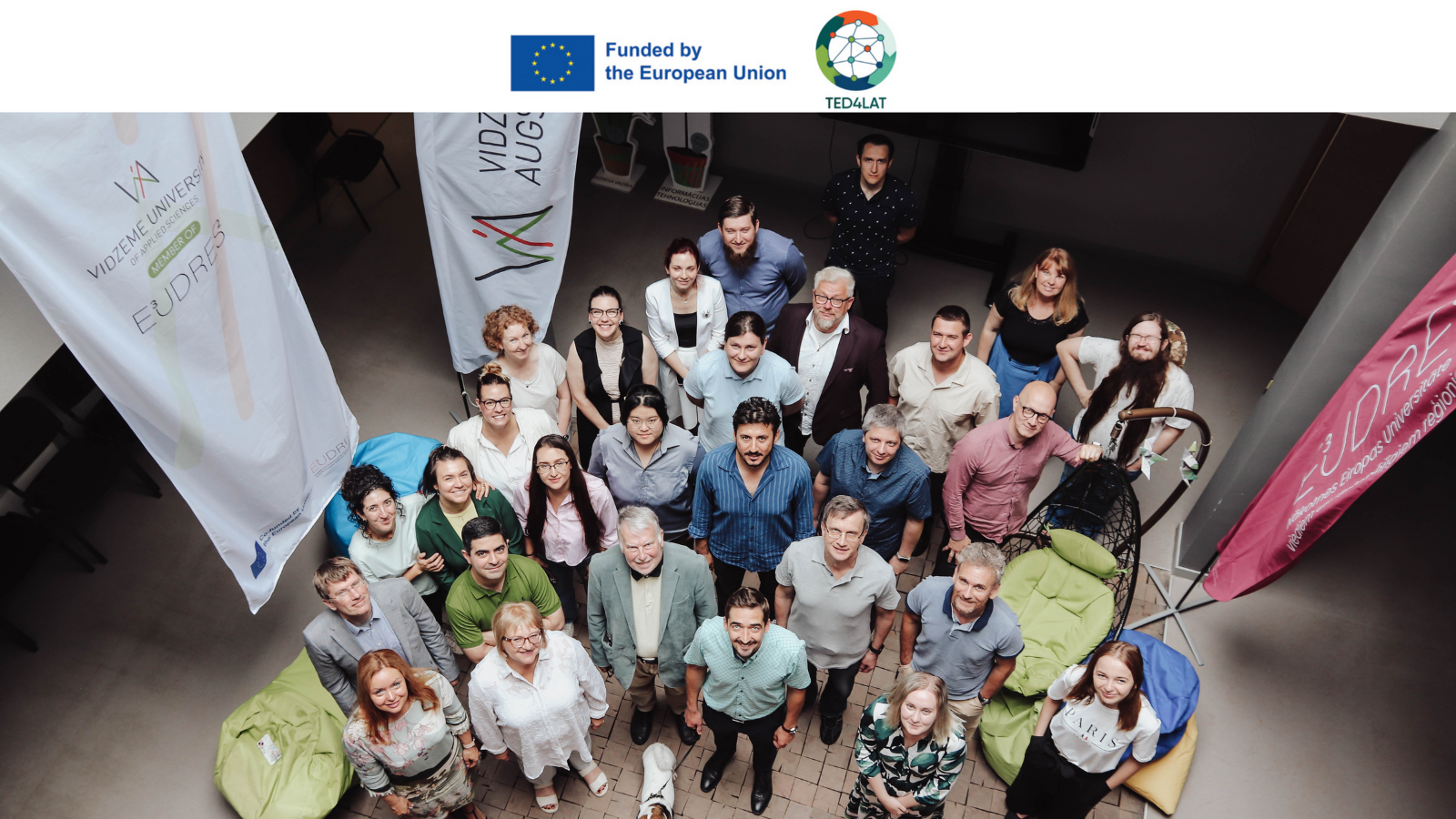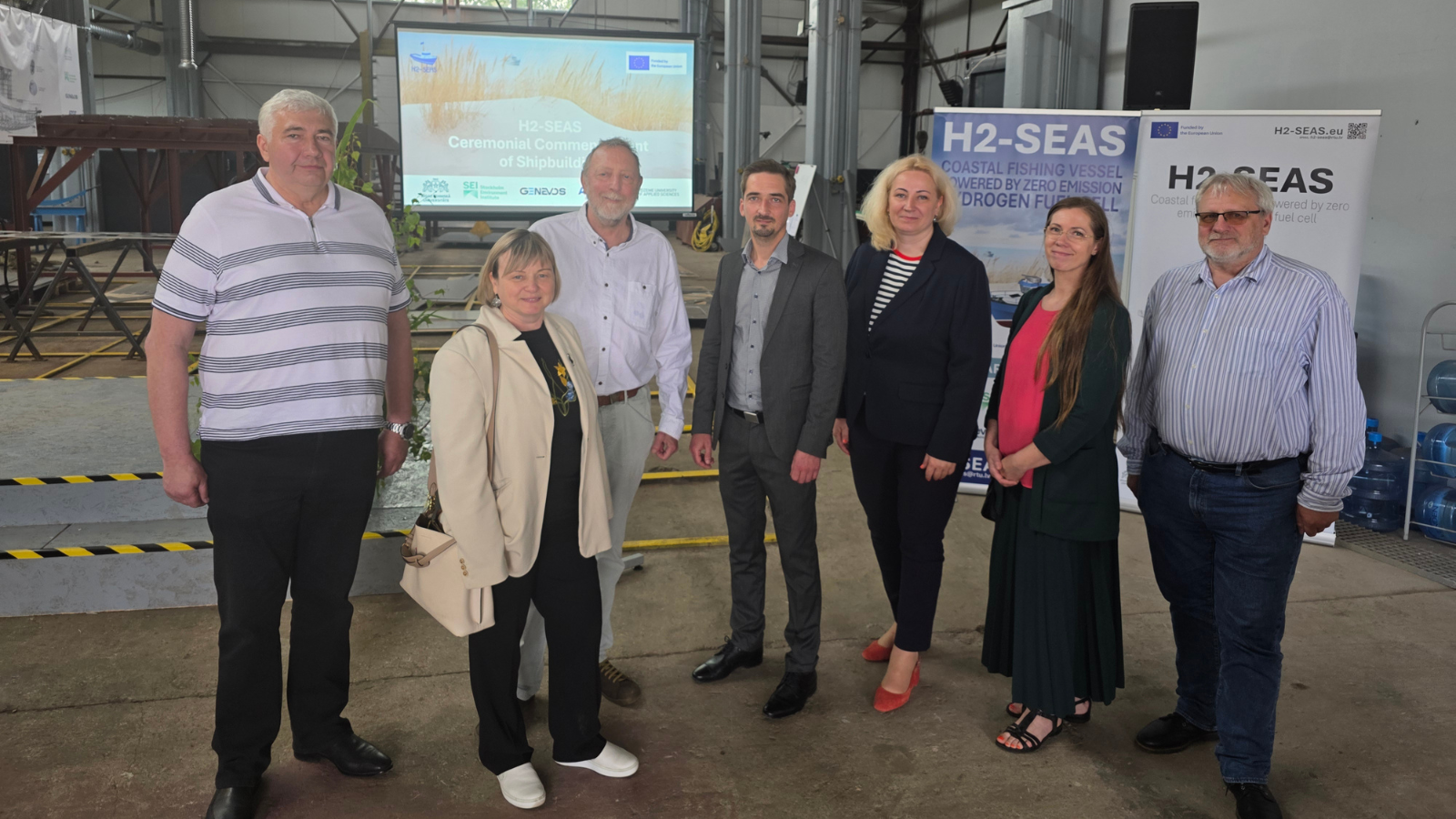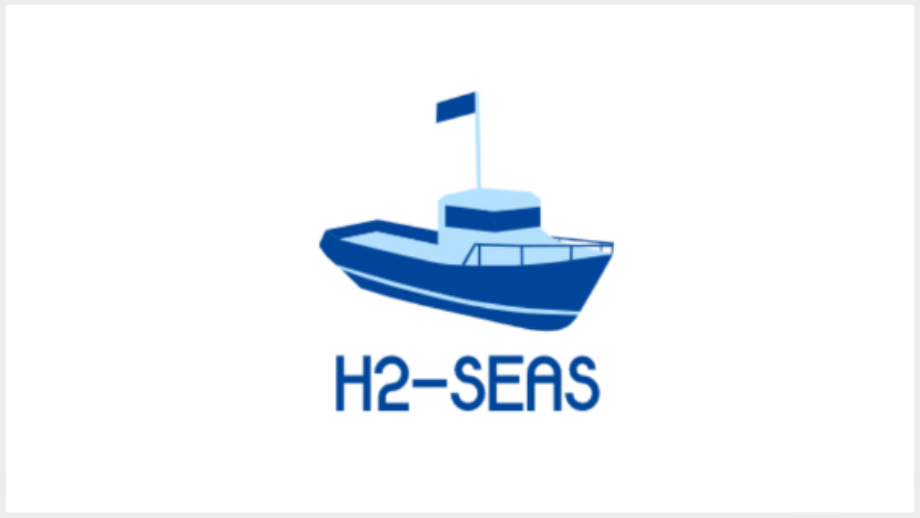The traveling exhibition "Science for Latvia 2025", created by the Ministry of Education and Science (IZM), offers a unique opportunity to explore 12 of Latvia’s outstanding scientists and their contributions to the development of society and research. Until August 27, this diverse exhibition can be viewed on the 2nd floor of the “Valleta” shopping center at 4 Rīgas Street, Valmiera, with a special focus on the contribution of Vidzeme University of Applied Sciences (ViA) and its role in advancing scientific research.
Twelve scientific excellence representatives from 12 leading Latvian research institutions highlight the strength and diversity of Latvian science within the European Research Area. In cooperation with the science communication platform researchLatvia, the calendar and exhibition "Science for Latvia 2025" showcase research topics explored by Latvian scientists that impact our society, environment, and culture. In August, particular attention is given to ViA’s role in developing internationally competitive research.
"Science and research, first and foremost, mean well-considered, knowledge-based decisions to me. Secondly, they are the key to prosperity, as research leads to new, innovative products and services with higher added value,” says Ph.D. Oskars Java, Director and Researcher at the Institute of Sociotechnical Systems Engineering at ViA.
Each scientist represents a unique research field, including choreomusicology, national defense and security, pharmacogenetics, protection of rare and endangered species, reduction of water body overgrowth, comet activity research, art science, simulation modeling, modern society’s inner logic from a philosophical perspective, cultural studies, and the history of books, library science, and the written word.
Throughout the year, the traveling exhibition will be displayed at various higher education institutions, as well as other public and cultural venues across Latvia. By scanning QR codes, visitors can watch all 12 video stories. This initiative not only promotes the visibility of science but also strengthens the public's connection with it.
“I am always pleased when we are approached to host exhibitions. It means that 'Valleta' is recognized and valued as a place that reaches a broad audience,” says Monta Rubene, Director of the shopping center.
She adds: “August is a time when students prepare for or return to school, so this kind of exhibition fits well with the spirit and rhythm of this season.”
The 12 scientists – six women and six men – each contribute with their unique research to the development of interdisciplinary national and global scientific centers:
- Dr. art. Diāna Zandberga (Vice-Rector for Scientific and Creative Work at Jāzeps Vītols Latvian Academy of Music; Director of the joint professional doctoral arts program of Latvian art universities; pianist)
- Dr. sc. pol. Toms Rostoks (Director of the Center for Security and Strategic Research at the National Defence Academy of Latvia; Associate Professor)
- Dr. biol. Renāte Ranka (Tenure Professor at Riga Stradiņš University Faculty of Pharmacy; Lead Researcher at the Institute of Public Health)
- Dr. biol. Artūrs Škute (Professor at the Institute of Life Sciences and Technology, Daugavpils University)
- Ph.D. Rūta Ozola-Davidāne (Associate Tenure Professor at the Institute of Landscape Architecture and Environmental Engineering, Faculty of Forest and Environmental Sciences, Latvia University of Life Sciences and Technologies)
- Mg. sc. comp. Karina Šķirmante (Lead Researcher and Doctoral Student at Ventspils International Radio Astronomy Center, Ventspils University of Applied Sciences)
- Art. D. Ansis Rozentāls (Lecturer at the Art Academy of Latvia; IT specialist and painter)
- Ph.D. Oskars Java (Director and Researcher at the Institute of Sociotechnical Systems Engineering, ViA)
- Dr. phil. Raivis Bičevskis (Tenure Professor in the Faculty of Humanities at the University of Latvia, specializing in social philosophy, ethics, and religious studies)
- Dr. sc. ing. Sergejs Gaidukovs (Tenure Professor at the Faculty of Natural Sciences and Technologies, Riga Technical University)
- Ph.D. Baiba Tjarve (Deputy Director and Lead Researcher at the Institute of Culture and Arts, Latvian Academy of Culture)
- Mg. art., Mg. soc. Dagnija Baltiņa (Director of the National Library of Latvia; Doctoral Student)
Modern science inspires, amazes, and shapes a knowledge-based society! May the achievements of the Castle of Light (National Library), Latvia's universities of science, arts, and applied sciences continue to inspire us all – to seek, to create, and to grow!
The science calendar has been developed with the support of European Union funds.
Developers: SIA “Entuziasti Digital,” including Mārtiņš Pavasaris, video director Kristaps Mozgirs, and photographer Mārtiņš Goldbergs, in collaboration with the researchLatvia creative team.


